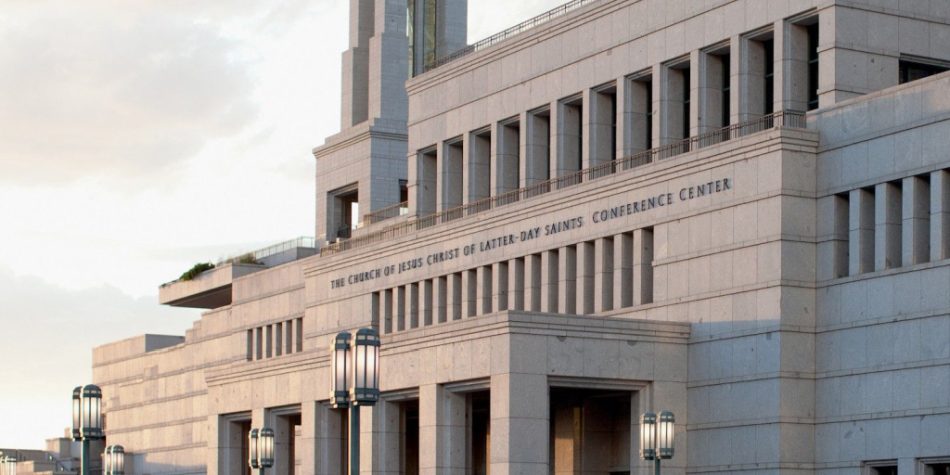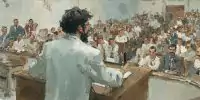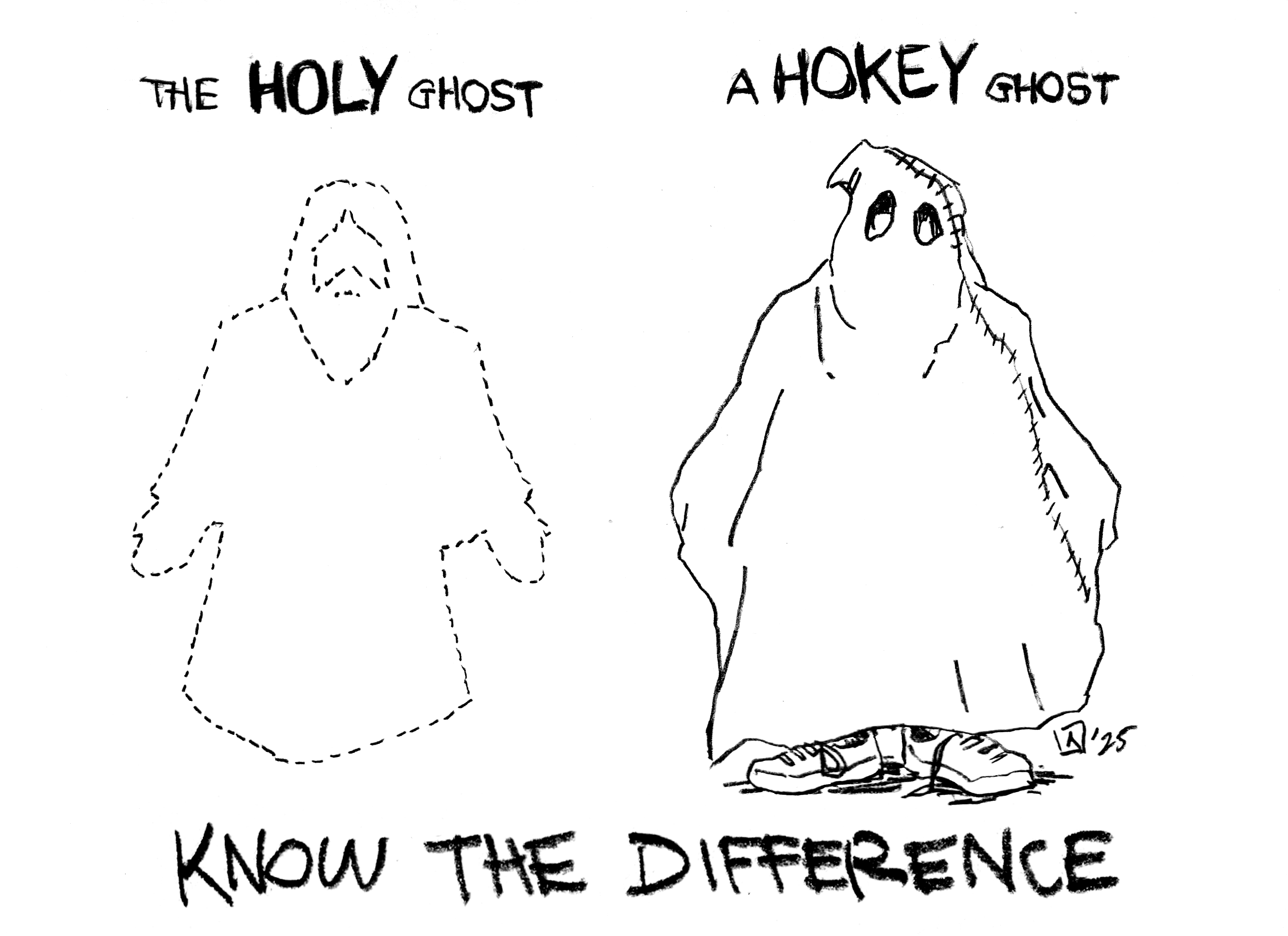Gale Boyd. Before General Conference started I was feeling down after reading the tirades of some critics of our faith. After defending the Word for nearly 15 years, instead of being battle-hardened I sometimes feel like I’m suffering from PTSD. That’s also probably somewhat worse because I was raised in a home full of conflict and contention.
All around us, thanks to social media and the internet, contention and conflict are exploding. In witnessing this, something has been welling up inside me—a deeper realization that all this contention holds and keeps us on a much lower plane than where God wants us to be.
With this on my mind, right at the beginning of the first session, I was heartened to hear President Russell Nelson give a talk on conflict and contention: “Contention violates everything the Savior said and taught. I love the Lord Jesus Christ and testify that his gospel is the only enduring solution for peace. His gospel is a gospel of peace.” That same theme of transcending contention in order to become a Zion-ready people was repeated time after time in various sessions, including this from President Nelson the next morning:
My call today, dear brothers and sisters, is to end the conflicts that are raging in your heart, your home, and your life. Bury any and all inclinations to hurt others—whether those inclinations be a temper, a sharp tongue, or a resentment for someone who has hurt you. The Savior commanded us to turn the other cheek, to love our enemies, and to pray for those who despitefully use us. …
Then he issued this challenge:
Two weeks from today we celebrate Easter. Between now and then, I invite you to seek an end to a personal conflict that has weighed you down. Could there be a more fitting act of gratitude to Jesus Christ for his Atonement? If forgiveness presently seems impossible, plead for power through the atoning blood of Jesus Christ to help you.
Compared with a basic agreement together, this kind of “seeing eye to eye” Alma confirms arises from seeing eye to eye with God—to want nothing but what God wants. Or as Isaiah says of a future day of peace, the people will sing because we shall sing because “they shall see eye to eye when the Lord shall bring again Zion.” Everyone in Zion is seeing eye to eye with God.
Jacob Hess. As things heat up and darken further in the world around us, there are times in which some of us wish for an ominous Old Testament prophetic voice, standing before us in the mold of Tucker Carlson to say something like, “if you think things are hard now, just wait— because they’re about to get way worse. Who knows how long we’ll be able to keep sharing the gospel or worshiping in temples. It’s time to dig in and fight these forces of evil—that are bent on our collective destruction!” All this contention holds and keeps us on a much lower plane than where God wants us to be.
That seems to be precisely one of the priorities of the living prophet on the earth today, who asked yesterday: “How can we expect peace to exist in the world when we are not individually seeking peace and harmony?” alongside this following challenge: “My call today, my dear brothers and sisters, is to end the conflicts that are raging in your heart, your home, and your life. Bury any and all inclinations to hurt others—whether those inclinations be a temper, a sharp tongue, or resentment for someone who has hurt you.”
In addition to clearing up the hurtful conflict from the past, Elder Neil L. Anderson encouraged proactive peacemaking action into the future, reminding us that sometimes remaining silent is a way to foster peace.
Some of the attacks upon the Savior were so vehement He said nothing. “And the chief priests and scribes vehemently accused him and mocked him, but Jesus answered them nothing.” There are times when being a peacekeeper means we resist the impulse to respond and instead, with dignity, remain quiet.
He acknowledged, “it’s heartbreaking for all of us when hard or dismissive words about the Savior, His followers, or His Church are spoken or published by those who once stood with us, took the sacrament with us, and testified with us of the divine mission of Jesus Christ.” Even so, he said, this happened during the Savior’s ministry as well—before reiterating, “Jesus taught us to withdraw from the circle of anger and contention.”
These reminders, of course, came amidst other encouragement to continue to raise our voices as guided by the Spirit. Elder Anderson himself spoke against “shrinking before those who disparage us” and added that “peacemakers are not passive,” but instead are “persuasive in the Savior’s way.” So, the author of Ecclesiastes is right: there is “a time to keep silence and a time to speak.” After encouraging us to “heed not” what those attacking the truth are saying, Elder David Bedar ended with emotion in his voice by saying, “In the fight for right, may each of us wield a sword—even the ‘mighty sword of truth.’” President Dallin Oaks closed the final conference doing just that, in his remarks on the Proclamation on the Family.
May the Spirit continue to guide us in when to pick up our swords—and when to bury them for something better. Both require courage and grace. And surely both will be needed in the tumultuous days ahead.
Laura Whitney. Sister Reyna I. Aburto’s talk on the Church struck me. We live in a time of anti-institutionalism and large entities are seen as cold, distant, and driven by greed and power. What Sister Aburto pointed out is the need for such institutions to accomplish great things. People love a grassroots movement, but at some point, that kind of strength becomes a threat. Even so, Sister Aburto pointed out that the Church IS the members. We each create this amazing institution. “My call today, my dear brothers and sisters, is to end the conflicts that are raging in your heart, your home, and your life.”
As one of the newest members of the Tabernacle Choir at Temple Square, I was given a unique “backstage” perspective this week of all that goes into putting together General Conference. As I sat in the choir loft and watched good men and women gather, greet each other, sit in their assigned seats, speak at their allotted time, or observe if not speaking I was struck by the human-ness of it all. At the beginning of the session, I saw two apostles rush to their seats upon realizing the prophet had entered the room, I saw them straighten their jackets and ties as they got up to speak, and I saw General Authorities wave to choir members they knew.
As the session ended and the prophet exited the room, I got one final unique perspective. I could not see the prophet below the rostrum, but I could see groups of saints waving, over and over. A silent, sweet appreciation and love. These individuals waving in quiet love, these good people— WE—are the Church. When we struggle with the institution, maybe it’s time to look in the mirror.
Carol Rice. Losing my mother at a young age has often left me searching for maternal figures and role models in my life. What I’ve found is that the world offers hollow solutions; “self-care” in place of nurturing, and a steady drumbeat of fear rather than comfort. Amidst such emptiness, it’s understandable that some desire to know more about a mother in heaven. In his address about the Young Women’s theme, Elder Dale G. Renlund assured us of our eternal and divine natures, that we have a heavenly father and mother, and that we are loved as their spirit daughters. He also cautioned us about speculation, and reason without revelation. He said, “Speculation will not lead to greater spiritual knowledge, but it can lead to deception or divert our focus from what has been revealed.”
God’s first commandment to his children states: “Thou shalt have no other gods before me” (Exodus 20:3). Given His wisdom and love for us, the answer isn’t more gods, but to know and love the one true God, better. God is perfect and all-knowing in the ways that He compassionately nurtures, comforts, and directs our lives. Elder Renlund’s words left me with renewed confidence that for this life, knowing my Heavenly Father through His Son, Jesus Christ, is a perfect plan that can meet all my needs. No doubt, the love of a Mother in Heaven is added to their love for us. Indeed, this thought was echoed by President Harold B. Lee when he said:
We forget that we have a Heavenly Father and a Heavenly Mother who are even more concerned, probably, than our earthly father and mother, and that influences from beyond are constantly working to try to help us when we do all we can. (See here to review what other prophets have said about Mother in Heaven.)
This love and concern for us are most clearly manifested in what our brother, Jesus Christ, did for us. He is the one Who died and atoned for us. Our way back home to them all—our Father and Mother in Heaven and our earthly parents—is found by knowing and following Him.
Cassandra Hedelius. On Saturday afternoon, Elder Gerritt W. Gong spoke about the benefits of family history work, and it struck me how powerful it can be for teaching my children:
“In this age of ‘I choose me,’ societies benefit when generations connect in meaningful ways. We need roots to have wings. Real relationships, meaningful service, life beyond fleeting social media veneers. Connecting with our ancestors can change our lives in surprising ways. From their trials and accomplishments, we gain faith and strength. From their love and sacrifices, we learn to forgive and move forward. Our children become resilient. We gain protection and power. Ties with ancestors increase family closeness, gratitude, miracles. Such ties can bring help from the other side of the veil.”
More than anything, I want to give my children the gift of strong faith in the gospel and in Christ. I keep a realistic eye on the forces working against me, and they’re daunting. But I grew up hearing and reading stories about my ancestors, and I’m starting to understand how much it did for me. My great-grandparents’ stories about farm life, how hard they worked, and how many disasters and disappointments and tragedies they weathered, planted gratitude in my soul more deeply than anything else could have. I feel gratitude for them, for the ways my life is so much easier than theirs, and for the connection God has given me to them. That gratitude has helped me cultivate strength of character and determination to live the gospel in spite of any temporary difficulties.
So with Elder Gong’s encouragement, I’m planning more ways to involve my children in family history. We’re not expert historians, but we can use journals, pictures, maps, and even YouTube footage of towns my ancestors lived in to help my children feel close to them. I look forward to the blessings of resilience, protection, power, family closeness, gratitude, and miracles that Elder Gong promised.
Jeff Bennion. While the personal, spiritual witness of Christ has never been more needed in the world than today, it has also never been more unwelcome. What spoke to my heart from the messages of several speakers was that there may be a cost to that witness—a loss of friends, social status, maybe even financial impacts. And that is on top of all the other trials and difficulties that mortal life brings each of us, with its customized curriculum.
Am I willing to bear all things for His name’s sake? Sister Amy A. Wright’s words moved me deeply, for this place of “polishing and refining” is a sacred place where I can “come to know the Savior in a deeply personal way.” That relationship is so precious that it should be worth any sacrifice for me to attain. When I exercise this kind of faith, as Elder David Bednar said, it “creates a connection with the Lord that is deeply personal and spiritually powerful,” one that will help me to “‘heed not’ the many distractions, taunts, and diversions in our fallen world.”
Christopher Cunningham. As rancor increases in the public square in general and around The Church of Jesus Christ of Latter-day Saints in particular, I was grateful for two remarks that were especially helpful in better understanding what prophets see is currently needed in our public discourse. President Oaks spoke directly about what needed to be discussed and defended in the public square, and Elder Andersen spoke about how to engage in the public square.
President Oaks spoke of three issues that it is important to advocate for presently: (1) Freedom of Religion, (2) Good conditions for children to grow, and (3) Gender and marriage. These are, to be sure, among the most contentious topics today. So President Oaks’ remarks were particularly meaningful coming on the heels of Elder Andersen’s remarks. Elder Andersen spoke about being peacemakers. He suggested a balance between engagement and withdrawal. But ultimately concluded, “Peacemakers are not passive, they’re persuasive.” As we continue to advocate for our deeply held beliefs in public, I’ve been inspired to focus on the most important principles, and be persuasive in ways that will promote peace.
Michael Peterson. Several things from the conference impressed me: Sister Alberto said that our smallest efforts are making a significant difference in God’s kingdom. President Nelson referred to our ability to “answer for the hope that is in us,” and emphasized (as others did throughout the conference) avoiding contention and loving everyone. Elder Bednar cautioned us to “heed not” the mocking voices of our contemporary world. And I loved hearing Elder Anderson say that being a peacemaker is not “shrinking before those who disparage us” and that “peacemakers are not passive,” they are “persuasive in the Savior’s way.” I felt gratitude for being a small part of Public Square because I see the team of writers already seeking to write by these principles and I am learning from you day by day.
















